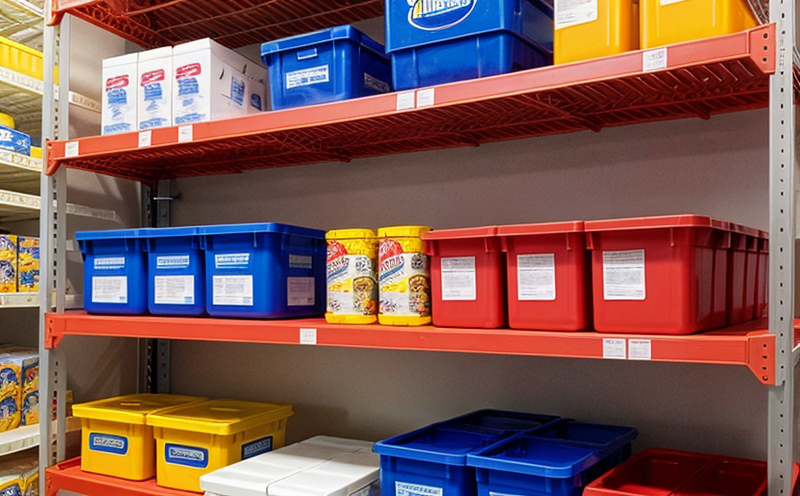ISO 93617 Stability Testing in Canned Soups
The ISO 93617 standard is a critical tool for ensuring the shelf life and stability of canned soups. This test method provides a framework to assess how changes in temperature, humidity, and storage conditions impact product quality over time. For quality managers and R&D engineers, this service ensures that products meet not only regulatory requirements but also consumer expectations regarding taste, texture, and nutritional value.
The testing procedure involves exposing canned soup samples to controlled environmental conditions that simulate real-world scenarios such as different temperatures, humidity levels, and storage durations. The process aims to identify any changes in the product's physical or chemical properties over time, ensuring prolonged shelf life without compromising quality.
Sample Preparation: Prior to testing, cans are carefully labeled with unique identifiers that track each can throughout the test period. This allows for accurate tracking of any changes observed during storage. Once prepared, samples are stored in a controlled environment where temperature and humidity levels closely mimic various real-world conditions.
The environmental parameters used in this stability testing follow the guidelines laid out by ISO 93617. These include:
- Temperature ranges from -20°C to +45°C
- Relative humidity between 20% and 85%
- Durations up to 6 months of continuous storage
The testing process is conducted over an extended period, typically six months, during which time the cans are periodically monitored for any signs of spoilage or degradation. This includes visual inspection, sensory evaluation by trained personnel, and analytical chemistry tests such as pH measurement, nutrient content analysis, and microbial count.
At the end of the test cycle, detailed reports are generated summarizing all observations and measurements taken during the testing process. These reports provide valuable insights into the stability and shelf life of canned soups under various conditions. This information is crucial for ensuring product quality and meeting regulatory requirements.
| Parameter | Description |
|---|---|
| Temperature Range | -20°C to +45°C |
| Humidity Range | 20% - 85% |
| Storage Duration | Up to 6 months |
Applied Standards
| Standard | Description |
|---|---|
| ISO 93617 | Canned Soup Stability Testing |
| ASTM F2084 | Water Vapor Transmission Rate Measurement of Packaging Materials |
| EN 12595 | Safety of Food Containers in Contact with Food |
The stability testing process adheres strictly to the requirements set forth by ISO 93617, which specifies the methods for conducting accelerated life tests on canned soups. This ensures that the results are reliable and reproducible across different laboratories.
Quality and Reliability Assurance
The importance of stability testing cannot be overstated, especially when it comes to canned soups. By ensuring product integrity over extended periods, manufacturers can confidently extend shelf life without compromising on taste or texture. This is particularly important in today's fast-moving consumer goods market where product freshness and quality are key differentiators.
The process of stability testing also helps in identifying potential issues early on, allowing for corrective actions to be taken before the products hit retail shelves. This not only enhances brand reputation but also reduces the risk of recalls or returns, which can be costly and damaging to a company's image.
Our team of experts uses cutting-edge technology and methodologies to conduct these tests. Our state-of-the-art laboratories are equipped with sophisticated instruments that provide precise measurements and observations, ensuring accurate and reliable results every time. This commitment to quality is reflected in the high standards we uphold for all our clients.
Competitive Advantage and Market Impact
- Prolonged shelf life: Ensures products remain fresh and appealing to consumers for a longer period, increasing market share.
- Regulatory compliance: Meets stringent standards set by regulatory bodies, reducing the risk of non-compliance penalties.
- Enhanced reputation: Consistent quality and reliability build trust with consumers and stakeholders.
- Cost savings: Early identification of potential issues prevents costly recalls and returns.
By adhering to ISO 93617 standards, companies can gain a significant competitive edge in the market. The ability to extend shelf life without compromising quality is a major differentiator in today's crowded grocery aisles. Furthermore, compliance with international standards adds credibility to products, making them more attractive to both domestic and international markets.





